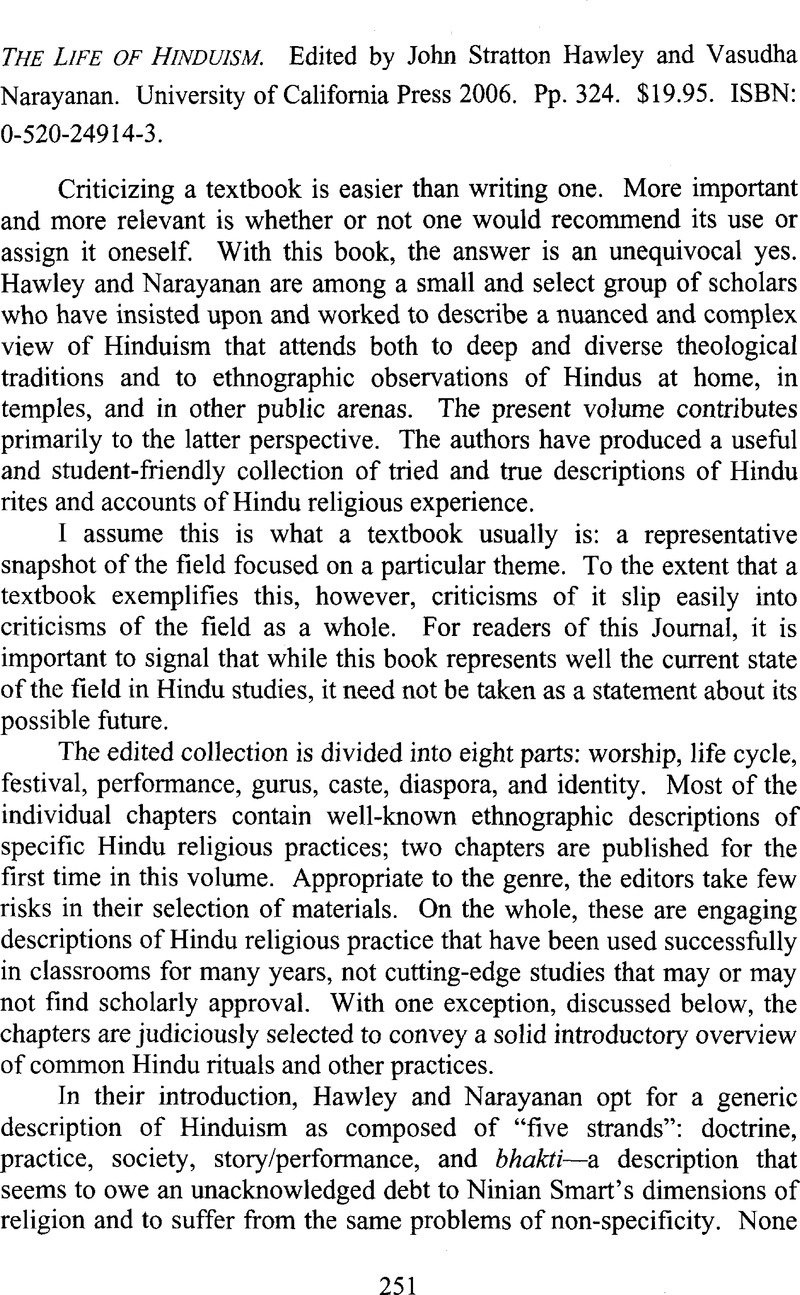No CrossRef data available.
Published online by Cambridge University Press: 24 April 2015

1. For an account and critique of this agenda in educational circles, see recently, Nussbaum, Martha C., The Clash Within: Democracy, Religious Violence, and India's Future (Harv. U. Press 2007)CrossRefGoogle Scholar.
2. The best survey of classical Hindu legal traditions is still Lingat, Robert, The Classical Law of India (Derrett, J.D.M. trans., U. Cal. Press 1973)Google Scholar. For colonial India, see Lloyd, & Rudolph, Susanne, Legal Cultures and Social Change: Panchayats, Pandits, and Professionals, in The Modernity of Tradition: Political Development in India 253 (U. Chi. Press 1967)Google Scholar; Galanter, Marc, Law and Society in Modern India (Oxford U. Press 1989)Google Scholar; and Cohn, Bernard S., Law and the Colonial State in India, in History and Power in the Study of Law: New Directions in Legal Anthropology (Starr, June & Collier, Jane F. eds., Cornell U. Press 1989)Google Scholar. A good ethnographic study, with a useful bibliography of other anthropological studies of law in India, is Hayden, Robert M., Disputes and Arguments amongst Nomads: A Caste Council in India (Oxford U. Press 1999)Google Scholar. Finally, I will also refer to the online Cooperative Annotated Bibliography of Hindu Law and Dharmaśāstra, https://raywebspace.wisc.edu/drdavis/web/hindulaw (accessed Dec. 18, 2008).